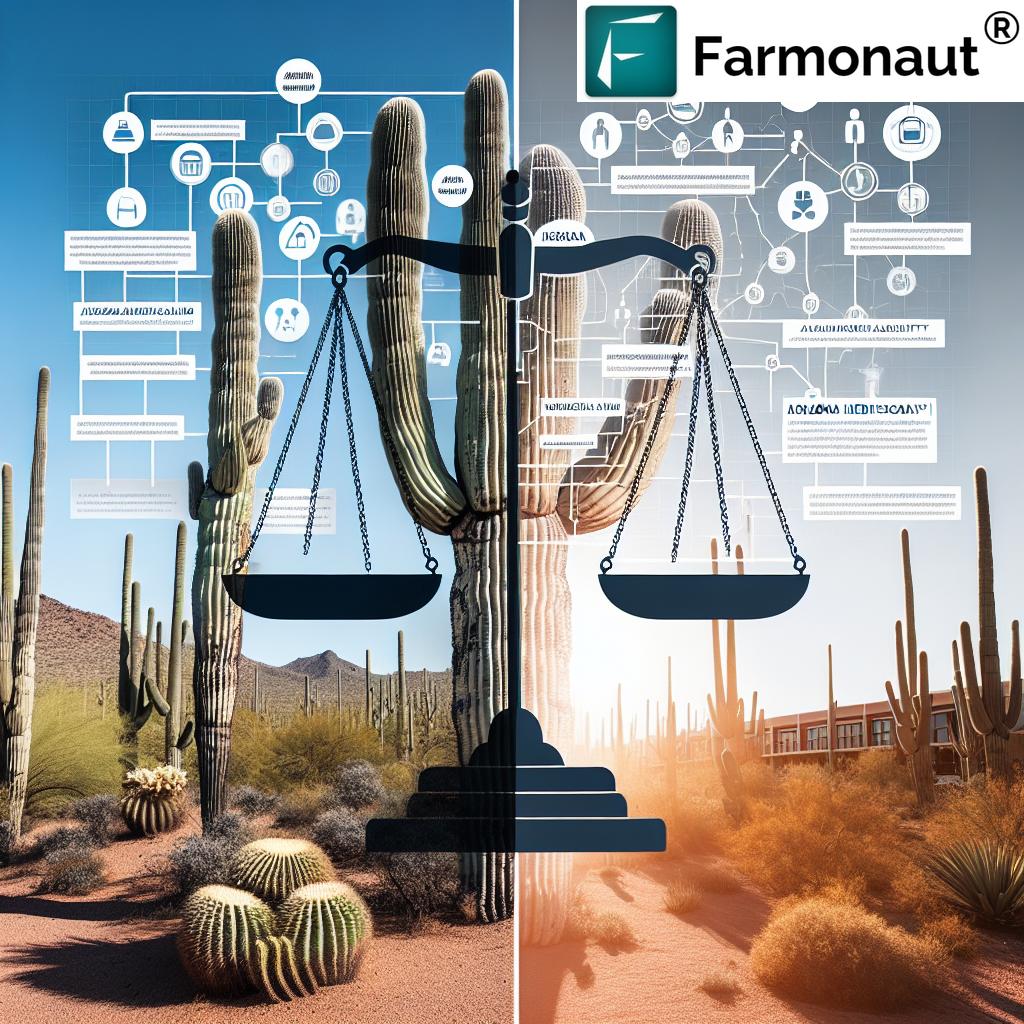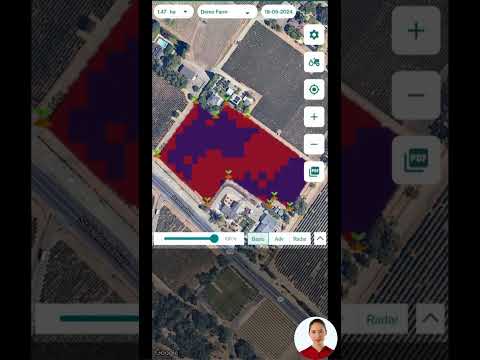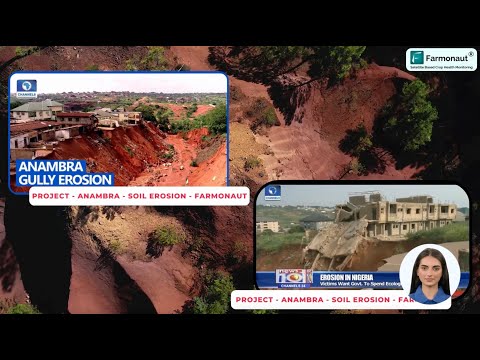Arizona’s Unique Legal Landscape: Navigating Community Property, Probate, and Medicaid Laws
“Arizona’s AHCCCS Medicaid program serves over 2 million residents, covering nearly 30% of the state’s population.”
As Arizona law experts with deep roots in the Grand Canyon State, we’ve witnessed firsthand how our unique legal landscape sets us apart from our neighbors. Our collective century of experience has given us a profound appreciation for the intricacies of Arizona law, particularly in the realms of community property, probate, and Medicaid eligibility. In this comprehensive guide, we’ll delve into the distinctive aspects of Arizona’s legal framework, exploring how it differs from neighboring states like California and Texas.
Our expertise is firmly grounded in Arizona law, and we take pride in our ability to navigate the complex legal terrain of our beloved state. From the towering saguaros of the Sonoran Desert to the agricultural bounty of our southern regions, Arizona’s rich history and diverse geography have played a significant role in shaping our legal landscape.
The Unique Flavor of Arizona Law
While Arizona shares some legal principles with other southwestern states, it’s crucial to understand that our laws have unique elements that set them apart. As specialists in Arizona law, we want to emphasize that the information we provide is specific to our state and should not be generalized to other jurisdictions.
- Community Property: Rooted in Spanish and Mexican legal traditions
- Probate Law: Early adoption of the Uniform Probate Code
- Medicaid: The Arizona Health Care Cost Containment System (AHCCCS)
- Guardianship and Conservatorship: Evolving standards and protections
Let’s explore these areas in detail to give you a comprehensive understanding of Arizona’s legal landscape.
Community Property Laws in Arizona: A Hispanic Heritage
One of the most distinctive aspects of Arizona law is our community property system. This legal framework, shared by only a handful of states including California and Texas, has its roots in Spanish and Mexican legal traditions. As Arizona law experts, we’ve seen how this concept profoundly affects various legal areas, especially estate planning, probate, and Medicaid eligibility.
In Arizona, community property is generally defined as all property acquired by either spouse during the marriage, except for gifts and inheritances. This concept can have significant implications for:
- Asset division in divorce proceedings
- Estate planning and inheritance
- Tax considerations
- Medicaid eligibility and asset protection
It’s important to note that while Arizona shares the concept of community property with states like California and Texas, the specifics of how these laws are applied can vary significantly. This is why it’s crucial to consult with Arizona-specific legal experts when dealing with community property issues in our state.

Arizona Probate Law: A Pioneering Approach
Arizona was an early adopter of the Uniform Probate Code in 1973, demonstrating our state’s commitment to streamlining and modernizing the probate process. However, it’s important to note that our probate laws have evolved over time, diverging from the original uniform code as updates have not always been embraced.
“Arizona’s probate process typically takes 6-18 months, significantly shorter than some neighboring states’ average timelines.”
Key aspects of Arizona probate law include:
- Simplified procedures for small estates
- Clear guidelines for intestate succession
- Provisions for informal probate in certain circumstances
- Specific rules for creditor claims against estates
As Arizona law experts, we’ve guided countless clients through the probate process, helping them navigate its complexities with efficiency and care. Our experience has shown us that while Arizona’s probate system is generally more streamlined than many other states, it still requires careful attention to detail and a thorough understanding of state-specific regulations.
The Arizona Health Care Cost Containment System (AHCCCS): A Unique Approach to Medicaid
Arizona’s approach to Medicaid, known as the Arizona Health Care Cost Containment System (AHCCCS), sets us apart from other states. As the last state to adopt the Medicaid program, Arizona took a unique approach that emphasizes managed care. This distinctive system has evolved over time, but its initial restrictive eligibility criteria continue to influence how Medicaid operates in our state.
Key features of AHCCCS include:
- Managed care model for most beneficiaries
- Emphasis on preventive care and cost containment
- Unique eligibility criteria and application processes
- Integration of behavioral health services
As Arizona law experts specializing in Medicaid eligibility, we’ve helped numerous clients navigate the complexities of AHCCCS. Understanding the nuances of this system is crucial for anyone seeking to qualify for long-term care or other Medicaid benefits in Arizona.
Trust Administration in Arizona: Balancing Uniformity and Local Practice
While Arizona introduced the Uniform Trust Code, our state’s version has been modified to accommodate local legal practices. This has resulted in a trust administration system that, while based on uniform principles, has distinct Arizona-specific elements.
Key aspects of Arizona trust administration include:
- Specific rules for trust modification and termination
- Provisions for decanting trusts
- Guidelines for trustee duties and powers
- Protections for beneficiaries and mechanisms for dispute resolution
As Arizona law experts, we’ve guided numerous trustees and beneficiaries through the intricacies of trust administration in our state. Our experience has shown us that while Arizona’s trust laws share commonalities with other states, there are crucial differences that require state-specific expertise.
Guardianship and Conservatorship in Arizona: Evolving Protections
Arizona’s approach to guardianship and conservatorship has evolved over time, reflecting changing attitudes towards the protection of vulnerable individuals. While our state took initial steps to implement thoughtful changes in this area, it has not kept pace with the evolving standards reflected in the Uniform Guardianship, Conservatorship and Other Protective Arrangements Act of 2017.
Key features of Arizona’s guardianship and conservatorship laws include:
- Provisions for limited guardianships and conservatorships
- Requirements for clear and convincing evidence of incapacity
- Ongoing monitoring and reporting requirements
- Mechanisms for challenging or modifying guardianships and conservatorships
As Arizona law experts, we’ve assisted many families in navigating the complexities of guardianship and conservatorship proceedings. Our experience has shown us that while these protective arrangements can be crucial for vulnerable individuals, they require careful consideration and ongoing oversight to ensure they serve the best interests of the protected person.

Estate Planning in Arizona: Navigating State-Specific Considerations
Estate planning in Arizona requires a thorough understanding of our state’s unique legal landscape. From community property considerations to the intricacies of our probate system, creating an effective estate plan in Arizona involves navigating a complex web of state-specific laws and regulations.
Key considerations for Arizona estate planning include:
- Community property implications for asset distribution
- Arizona-specific rules for wills and trusts
- Medicaid planning in the context of AHCCCS
- Tax considerations unique to Arizona
As Arizona law experts with extensive experience in estate planning, we’ve helped countless clients create comprehensive plans that address their unique needs while navigating the complexities of our state’s legal framework. Our deep understanding of Arizona law allows us to craft tailored solutions that provide peace of mind and protect our clients’ legacies.
Comparative Legal Landscape: Arizona, California, and Texas
To better illustrate the unique aspects of Arizona law, let’s compare key legal areas with our neighbors, California and Texas. This comparison highlights the importance of understanding state-specific laws and cautions against generalizing legal principles across different jurisdictions.
| Legal Aspect | Arizona | California | Texas |
|---|---|---|---|
| Community Property Laws | All property acquired during marriage is community property, with exceptions for gifts and inheritances. | Similar to Arizona, but with some differences in characterization and division. | Community property state, but allows spouses to opt-out through agreement. |
| Probate Process | Based on Uniform Probate Code with modifications. Average timeline: 6-18 months. | Not based on Uniform Probate Code. Generally longer and more complex process. | Independent administration allowed, often resulting in faster, less expensive process. |
| Medicaid Program Name | Arizona Health Care Cost Containment System (AHCCCS) | Medi-Cal | Texas Medicaid |
| Guardianship/Conservatorship | Allows for limited guardianships. Not fully aligned with latest uniform act. | Comprehensive system with strong emphasis on conservatee rights. | Allows for supported decision-making agreements as less restrictive alternative. |
| Trust Administration | Based on Uniform Trust Code with Arizona-specific modifications. | Not based on Uniform Trust Code. Has unique rules and procedures. | Adopted Uniform Trust Code with some modifications. |
| Estate Planning Considerations | Must consider community property, AHCCCS, and Arizona-specific tax laws. | High estate tax exemption. Community property and Medi-Cal planning crucial. | No state estate tax. Community property and Medicaid planning important. |
This comparison underscores the importance of consulting with state-specific legal experts when dealing with these complex areas of law. As Arizona law experts, we caution against applying legal principles from other states without careful consideration of our unique legal landscape.
The Importance of State-Specific Legal Expertise
Throughout this exploration of Arizona’s unique legal landscape, we’ve emphasized the importance of state-specific expertise. While there may be similarities in legal concepts across states, the nuances in application and interpretation can have significant implications for individuals and families navigating these complex areas of law.
As Arizona law experts, we’ve seen firsthand how generalizing legal principles across jurisdictions can lead to misunderstandings and potential legal pitfalls. Whether you’re dealing with community property issues, navigating the probate process, or planning for long-term care through AHCCCS, it’s crucial to work with attorneys who have a deep understanding of Arizona’s specific legal framework.
Our commitment to Arizona law allows us to provide our clients with accurate, up-to-date advice tailored to the unique aspects of our state’s legal system. From the sun-baked deserts of southern Arizona to the pine-covered mountains of the north, we’re proud to serve residents across our beautiful state, helping them navigate the complexities of Arizona law with confidence and clarity.
Conclusion: Embracing Arizona’s Legal Uniqueness
As we conclude our exploration of Arizona’s unique legal landscape, we hope we’ve illuminated the distinctive aspects of our state’s laws governing community property, probate, Medicaid eligibility, and more. From the rich agricultural heritage of our southern regions to the iconic landscapes of the Grand Canyon, Arizona’s diversity is reflected in its complex and nuanced legal framework.
Navigating this landscape requires more than just a general understanding of law—it demands a deep, state-specific expertise that can only come from years of experience practicing Arizona law. As dedicated Arizona law experts, we’re committed to guiding our clients through these complexities, ensuring they receive advice and representation tailored to the unique aspects of our state’s legal system.
Whether you’re planning your estate, navigating probate, or seeking to understand your rights under Arizona’s community property laws, remember that state-specific expertise matters. By embracing the uniqueness of Arizona law and seeking guidance from experienced local attorneys, you can ensure that your legal needs are met with the precision and care they deserve.
Frequently Asked Questions
- How does Arizona’s community property law differ from other states?
Arizona’s community property law is rooted in Spanish and Mexican legal traditions, similar to California and Texas. However, the specific application and interpretation of these laws can vary significantly between states. - What makes Arizona’s probate process unique?
Arizona was an early adopter of the Uniform Probate Code, which has led to a generally more streamlined process. However, our state has made modifications over time, resulting in a system that’s distinct from both non-UPC states and other UPC states. - How does AHCCCS differ from Medicaid in other states?
AHCCCS (Arizona Health Care Cost Containment System) is Arizona’s Medicaid program. It’s unique in its emphasis on managed care and its initially restrictive eligibility criteria, which continue to influence the program today. - Are Arizona’s guardianship and conservatorship laws different from other states?
While Arizona has implemented some reforms in guardianship and conservatorship laws, we have not fully adopted the latest uniform act. This results in a system that may offer different protections and processes compared to other states. - How does estate planning in Arizona differ from other states?
Estate planning in Arizona must take into account our community property laws, AHCCCS considerations, and state-specific tax implications. These factors can significantly impact estate planning strategies compared to non-community property states or states with different Medicaid systems.
As Arizona law experts, we’re here to help you navigate these complex legal waters. Remember, when it comes to Arizona law, local expertise matters.
Earn With Farmonaut: Affiliate Program
Earn 20% recurring commission with Farmonaut’s affiliate program by sharing your promo code and helping farmers save 10%. Onboard 10 Elite farmers monthly to earn a minimum of $148,000 annually—start now and grow your income!
For more information on Farmonaut’s innovative agricultural solutions, visit our web app, check out our API, or read our API Developer Docs.
Download our mobile apps:






